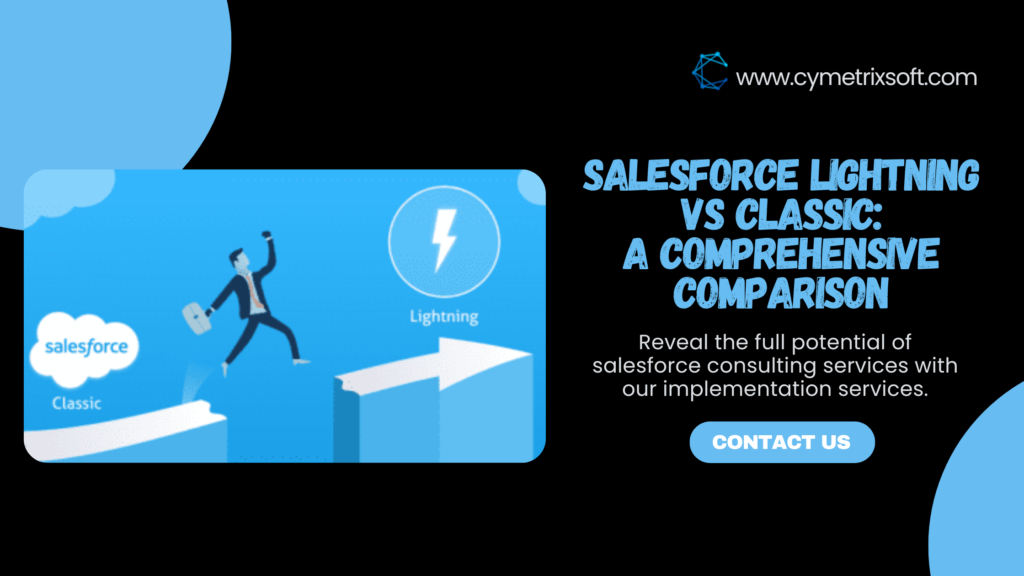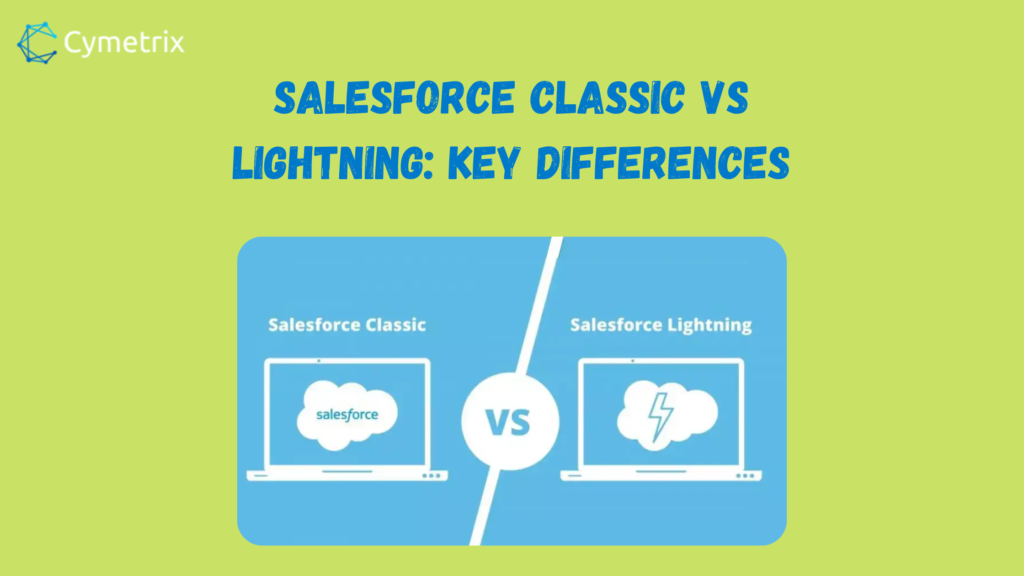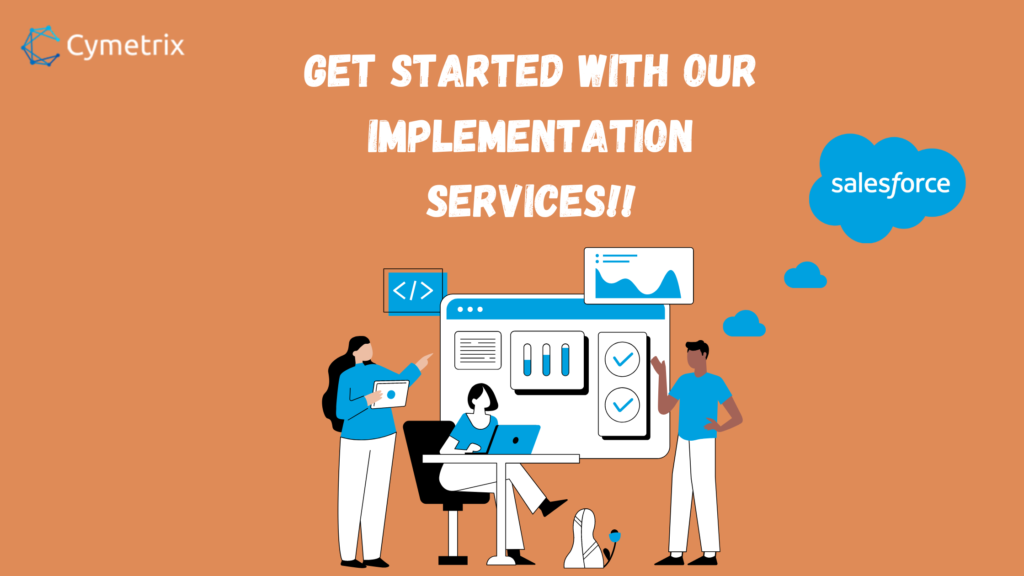
Introduction to Salesforce Lightning vs Classic
Salesforce is well-known for its customer relationship management (CRM) platform. It provides organizations with a wide range of tools to manage their sales, customer service, and marketing operations. The platform has two user interfaces: Salesforce Lightning Vs Classic.
Furthermore, both interfaces have advantages and disadvantages, and companies must decide which option is best for their needs. Today we’ll be taking a look at Salesforce Classic vs Lightning. The primary differences between Salesforce Classic and Lightning will assist enterprises to choose which one is best for them.
What is Salesforce Classic?
Salesforce Classic is the original user interface for Salesforce. It was first introduced in the early 2000s and has since been updated several times to meet the changing needs of organizations. Salesforce Classic provides users with a familiar interface and is considered to be the more straightforward of the two interfaces. It has a basic, easy-to-use design and gives users instant access to the tools and functions they require to complete their tasks.
What is Salesforce Lightning?
Salesforce Lightning, on the other hand, is a newer and more modern user interface. It was introduced in 2015 and is designed to be more user-friendly and intuitive. Salesforce Lightning provides organizations with a range of new features and functionalities. That includes a more streamlined interface, improved performance, and better customization options. In addition, Lightning also provides organizations with better access to mobile devices and offers an engaging user experience.
You can learn more about salesforce lightning and how to migrate from classic to lightning by reading our blog.

Salesforce Classic Vs Lightning: Key differences
Customization and User Experience
When it comes to customization and user experience, Salesforce Lightning has a clear advantage over Classic. Lightning provides organizations with a range of customization options. That includes the ability to add new components, customize the look and feel of the interface, and create custom pages. That allows organizations to tailor the platform to meet their specific needs and provides users with a more personalized experience.
Whereas Salesforce Classic provides limited customization options, and users must work within the constraints of the platform’s design. It can limit organizations’ capacity to customize the platform to their unique needs leading less personalized experience for users.
Performance and Speed
Performance and speed are important considerations for any software platform, and both Salesforce Classic and Lightning offer benefits in this area. Salesforce Lightning provides organizations with improved performance and faster load times compared to Classic. That is due to its more modern architecture and optimized code base.
However, Salesforce Classic provides organizations with a more stable and reliable platform, with fewer bugs and less downtime. In addition, Salesforce Classic has a long history and has been around for many years, providing organizations with a more established and mature platform.
Ease of Use
When it comes to ease of use, Salesforce Lightning is way ahead of Classic. As lightning provides users with a more intuitive and user-friendly interface, with a range of new features and functionalities designed to make the platform easier to use. In addition, Lightning provides users with improved navigation and access to the features and functionalities they need, making it easier for users to get their work done.
However, Salesforce Classic provides users with a more straightforward and traditional interface. That makes it a good choice for organizations that prefer a more straightforward design. However, the lack of new features can make it less appealing to users who prefer a more intuitive platform.
Mobile Access
Mobile access is becoming increasingly important for organizations nowadays. However, both Salesforce Classic and Lightning provide organizations with different advantages in this area. Organizations may benefit from increased mobile access thanks to Salesforce Lightning. It offers a more contemporary and streamlined mobile experience, better support for mobile devices, and improved performance on mobile devices. That makes it easier for users to access their Salesforce data and perform tasks on the go.
On the other hand, Salesforce Classic has limited mobile support. That makes it more challenging for users to access their data and perform tasks on mobile devices. While Salesforce Classic does offer a mobile app, it is not as modern or optimized as the Lightning interface. Additionally, users may find it more challenging to use on a small screen.
Cost and Implementation
Finally, cost and implementation are essential considerations for organizations when deciding between Salesforce Classic and Lightning. Even though Salesforce Lightning requires more hardware, software, and user training than Classic, the cost of implementation may be adequate for salesforce lightning. Additionally, the Lightning implementation procedure can be more challenging and time-consuming.
Whereas, Classic is typically less expensive and easier to implement, making it a good choice for organizations with limited budgets. However, organizations should acknowledge that the longer-term costs of using Classic may be higher. As they may need to upgrade their hardware and software over time to keep up with changing technology and security needs.
Bottom Line: Salesforce Classic vs Lightning
In conclusion, Salesforce Classic and Lightning offer unique benefits and drawbacks. Moreover, the choice between the two ultimately comes down to the needs and priorities of an organization. While salesforce lightning provides a more modern and engaging experience with improved performance and customization options. Salesforce Classic offers a more stable and straightforward platform with a lower cost of implementation.
For organizations that are considering a Salesforce implementation, it’s essential to work with a trusted implementation partner who can help you make the right choice for your business. A skilled implementation partner can provide you with expert guidance and support throughout the implementation process, helping you get the most out of your Salesforce investment.
So, if you’re ready to take the next step and implement Salesforce in your organization, we encourage you to reach out to a trusted Salesforce implementation partner like Cymetrix software today. With the appropriate support, you can unlock the full potential of Salesforce and drive growth, efficiency, and customer satisfaction for your business. Make the first move towards a better future for your company by getting in touch with a Salesforce implementation partner right away!

